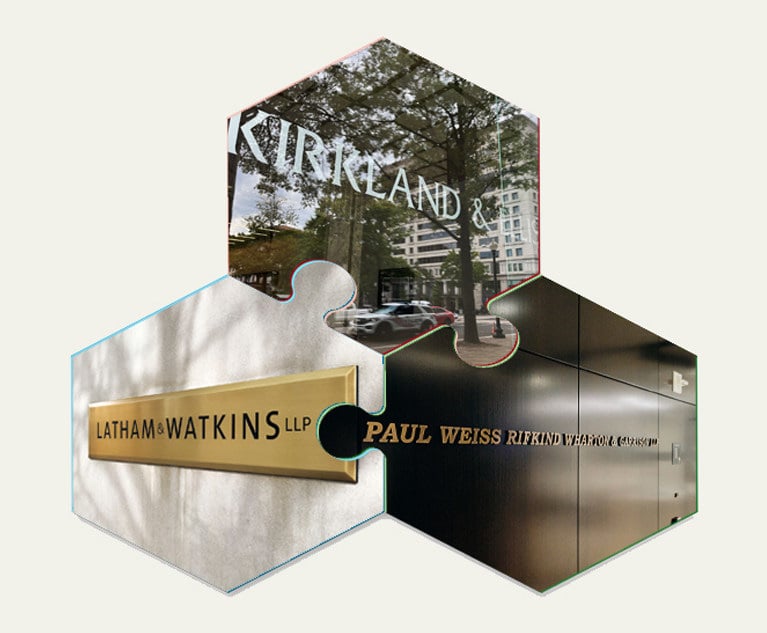Breaking the resistance to change – the cultural challenges hindering innovation in law
The vision behind law firm innovation initiatives is not always shared by risk-averse older partners
January 15, 2019 at 12:00 AM
6 minute read
The running joke in the legal services industry is that many partners get all their emails printed off for them. While that might not be universally true, it does spell out the perceptions many people in the industry have about lawyers and IT. But with the whole world in transition and the legal sector not immune from the changes, firms have to prepare a smooth transition between the old guard and industry newbies. All will benefit as a result.
The number of lawyers nearing retirement age is growing, which presents a number of problems. Firstly, there are the skills of newer entrants coming into the sector and whether they can make up the skills shortfall by those exiting the industry. The other concern is digital transformation finds itself in a precarious position, because often the most senior people in the business aren't as willing to invest in new technology as their younger counterparts would like.
According to research from the Solicitors Regulation Authority in England and Wales, people aged between 55 and 64 make up 14% of all lawyers in law firms. In firms mainly doing real estate, that number is as high as 22% and 19% in those doing private client work. There's a significant proportion of workers close to the end of their careers. And, while the largest contingent of lawyers currently falls in the 25-34 age bracket, there must be buy-in from the decision-makers that usually sit higher up the food chain to bring about real change.
Building relationships
The introduction of new technologies in the legal sector often isn't about the technology itself – it's about internal culture. One positive change we've seen taking place is the fact that there's a chief innovation officer at most law firms now. These are usually people who have moved from the IT team to take a broader role as they lead the thinking behind rolling out smart new services and products. This is vital as the demand from customers is for a more digital-led offering based on both speed and convenience.
The danger comes when the vision behind these products isn't shared by the traditionally risk-averse partners. Currently, the major decisions being made by law firms are being led by the need to drive down costs to remain competitive. Some have reduced their real estate footprints, particularly in costlier cities such as London, and replaced them with offices elsewhere in the country. Some have moved entire parts of their business overseas, with some firms relocating their service desks to India. These are business decisions that have been taken, often successfully, for years.
With technology-led decisions, including the introduction of new services, it can bring about impressive growth and also help businesses to remain relevant in changing times. However, not everyone is as readily on board to roll out new innovations, particularly when they are drastically different to what they have used for years. There is a risk of fractured relationships throughout the company when there is a vocal reticence to change, and it can hinder the development of the business.
 Himesh Chavda
Himesh ChavdaAdding value
So maybe we change the narrative. We can no longer rely on cost reductions alone – we have to rely on creating value. That's what will cause a business to thrive in the modern age of legal services. For instance, the use of chatbots to answer initial questions from customers helps free up staff to deliver a better service elsewhere without being held back by so much red tape.
The legal team at Orange Business Services worked with its IT department to develop an app that allows its sales staff to create NDAs and MSAs on their mobile devices. The NDAs can also be signed on the spot by the customer if needed. Now NDAs and MSAs can be created without the involvement of lawyers – so the lawyers can focus on more meaningful and valuable work.
This should be the theme that runs through every technology implementation as companies go through their digital transformation. We're working with businesses to develop AI and smart contract solutions, but whatever the technology we ultimately roll out, we're ensuring it's rooted in delivering value. And even better, we're also using technologies such as unified communications and collaboration tools that provide huge ROI, particularly because lawyers need new ways to work together on projects.
Demanding more
For businesses to perform well in a changing space, they can't afford to wait until the most vocal objectors retire so they can push through technology projects. Innovation is required now more than ever.
The good news is that law firms can lean more on their IT providers. It might be the case that the legal practice already has its own staff writing proprietary code for their new services but that doesn't mean they can't partner more to improve what they already have. Companies can become more efficient by seeking the compute power that could take their services to the next level. It's certainly worth having a conversation with your provider to make sure you are using them to their potential. And maybe you will need to bring more people into the room if you feel there is more you can gain elsewhere.
IT innovation isn't an activity that should be carried out in hidden pockets of an organisation. Even though it might have become a bigger job than what is carried out by the IT department, that doesn't mean silos are a thing of the past. When you do a better job of communicating the direction of travel for your innovation, it will help the transition to build better services for tomorrow.
Himesh Chavda is senior counsel, EMEA, at Orange Business Services.
- Click here for more from Legal Ladder, our dedicated careers blog to help lawyers and recruiters keep abreast of the key issues facing the profession
NOT FOR REPRINT
© 2025 ALM Global, LLC, All Rights Reserved. Request academic re-use from www.copyright.com. All other uses, submit a request to [email protected]. For more information visit Asset & Logo Licensing.
You Might Like
View All
DeepSeek’s AI Power Move: Will Lawyers Be the Next to Adapt or Perish?
6 minute read
Now That the Trump Era Has Begun, Change Is Coming. For Big Law, Change Is Already Here
6 minute readTrending Stories
- 1Uber Files RICO Suit Against Plaintiff-Side Firms Alleging Fraudulent Injury Claims
- 2The Law Firm Disrupted: Scrutinizing the Elephant More Than the Mouse
- 3Inherent Diminished Value Damages Unavailable to 3rd-Party Claimants, Court Says
- 4Pa. Defense Firm Sued by Client Over Ex-Eagles Player's $43.5M Med Mal Win
- 5Losses Mount at Morris Manning, but Departing Ex-Chair Stays Bullish About His Old Firm's Future
Who Got The Work
J. Brugh Lower of Gibbons has entered an appearance for industrial equipment supplier Devco Corporation in a pending trademark infringement lawsuit. The suit, accusing the defendant of selling knock-off Graco products, was filed Dec. 18 in New Jersey District Court by Rivkin Radler on behalf of Graco Inc. and Graco Minnesota. The case, assigned to U.S. District Judge Zahid N. Quraishi, is 3:24-cv-11294, Graco Inc. et al v. Devco Corporation.
Who Got The Work
Rebecca Maller-Stein and Kent A. Yalowitz of Arnold & Porter Kaye Scholer have entered their appearances for Hanaco Venture Capital and its executives, Lior Prosor and David Frankel, in a pending securities lawsuit. The action, filed on Dec. 24 in New York Southern District Court by Zell, Aron & Co. on behalf of Goldeneye Advisors, accuses the defendants of negligently and fraudulently managing the plaintiff's $1 million investment. The case, assigned to U.S. District Judge Vernon S. Broderick, is 1:24-cv-09918, Goldeneye Advisors, LLC v. Hanaco Venture Capital, Ltd. et al.
Who Got The Work
Attorneys from A&O Shearman has stepped in as defense counsel for Toronto-Dominion Bank and other defendants in a pending securities class action. The suit, filed Dec. 11 in New York Southern District Court by Bleichmar Fonti & Auld, accuses the defendants of concealing the bank's 'pervasive' deficiencies in regards to its compliance with the Bank Secrecy Act and the quality of its anti-money laundering controls. The case, assigned to U.S. District Judge Arun Subramanian, is 1:24-cv-09445, Gonzalez v. The Toronto-Dominion Bank et al.
Who Got The Work
Crown Castle International, a Pennsylvania company providing shared communications infrastructure, has turned to Luke D. Wolf of Gordon Rees Scully Mansukhani to fend off a pending breach-of-contract lawsuit. The court action, filed Nov. 25 in Michigan Eastern District Court by Hooper Hathaway PC on behalf of The Town Residences LLC, accuses Crown Castle of failing to transfer approximately $30,000 in utility payments from T-Mobile in breach of a roof-top lease and assignment agreement. The case, assigned to U.S. District Judge Susan K. Declercq, is 2:24-cv-13131, The Town Residences LLC v. T-Mobile US, Inc. et al.
Who Got The Work
Wilfred P. Coronato and Daniel M. Schwartz of McCarter & English have stepped in as defense counsel to Electrolux Home Products Inc. in a pending product liability lawsuit. The court action, filed Nov. 26 in New York Eastern District Court by Poulos Lopiccolo PC and Nagel Rice LLP on behalf of David Stern, alleges that the defendant's refrigerators’ drawers and shelving repeatedly break and fall apart within months after purchase. The case, assigned to U.S. District Judge Joan M. Azrack, is 2:24-cv-08204, Stern v. Electrolux Home Products, Inc.
Featured Firms
Law Offices of Gary Martin Hays & Associates, P.C.
(470) 294-1674
Law Offices of Mark E. Salomone
(857) 444-6468
Smith & Hassler
(713) 739-1250











